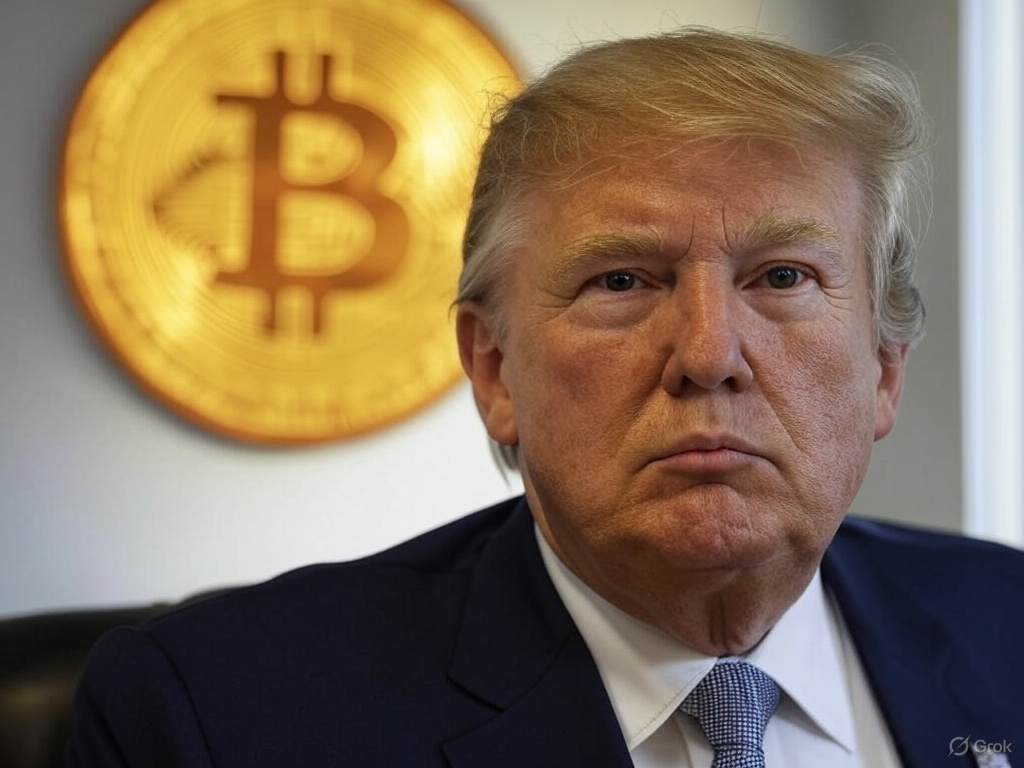How Politicians and Influencers Took Center Stage, Leaving Builders in the Shadows
In the early days of cryptocurrency, visionaries like Satoshi Nakamoto and Hal Finney championed a revolutionary idea: a decentralized financial system free from the control of large institutions and government interference.

Over time, brilliant builders such as Vitalik Buterin (co-founder of Ethereum) and Changpeng Zhao (founder of Binance) expanded on that vision, establishing new platforms and exchanges that pushed crypto toward mainstream adoption.
Today, however, the crypto narrative has shifted dramatically. Instead of celebrating technological breakthroughs and open-source collaboration, headlines often focus on attention-grabbing tweets, meme-driven hype, and, increasingly, political agendas. This trend has sparked criticism that crypto’s spirit of decentralization has been overshadowed—and in some cases exploited—by high-profile individuals looking to capitalize on the buzz.
The Descent Into Political Hype
Trump Coin: From Hype to Dump
A prime example of this politicization is the Official Trump from the U.S. President Donald Trump. Promoted by Trump, the coin stirred considerable attention, and the price pumped hard.
After a massive price increase, the tokens (80% were in the hands of Trump and his associates) were dumped on the market, and currently, the price has fallen more than 80% of its ATH.
Such behavior is a stark contrast to how early crypto pioneers operated. Individuals like Vitalik Buterin or Changpeng Zhao would unlikely orchestrate a “pump-and-dump” scheme because their reputations are built on legitimate technological contributions, user trust, and long-term platform success.
Early Visionaries vs. Modern Politicians and Influencers
Founding Fathers of Crypto: Satoshi and Hal Finney
- Satoshi Nakamoto: The pseudonymous creator of Bitcoin launched a decentralized monetary system that allowed anyone, anywhere, to send value without a central intermediary.
- Hal Finney: An early contributor who received the first Bitcoin transaction, helping legitimize the concept and fueling early adoption.
Builders Who Expanded the Ecosystem
- Vitalik Buterin: His development of Ethereum introduced smart contracts, enabling decentralized applications (dApps) and redefining blockchain’s potential.
- Changpeng Zhao (CZ): CZ founded Binance, one of the largest cryptocurrency exchanges globally, making crypto more accessible and liquid.
For these innovators, crypto was about solving problems, revolutionizing finance, and fostering open-source collaboration.
Politicians and Social Media Celebrities
In stark contrast, crypto discourse today is often shaped by tweets from billionaires, fleeting mentions from mainstream influencers, or the political ambitions of public figures. Trump Coin is not an isolated case; numerous projects ride on a politician’s name or public persona with little substance beneath the branding. The goal? It is to attract quick speculators hoping to profit from a celebrity endorsement rather than to build sustainable, decentralized solutions.
Other Posts:
5 Ways to Make Money When Markets are Down
Why the Shift Happened
- Mainstream Attention
As the crypto market’s valuation soared, it naturally drew attention from outside the tech sphere. Opportunists—from celebrities to political figures—recognized how easy it was to influence prices through social media, fueling hype cycles and often leaving technology and fundamentals by the wayside. - Investor Psychology
Many retail investors are swayed by social proof. If a coin is linked to someone famous, it’s more likely to catch on quickly—even if the fundamentals are lacking. This superficial allure replaces the original ethos of peer-reviewed code, open-source collaboration, and measured development. - Regulatory Ambiguity
The global patchwork of crypto regulations leaves plenty of room for questionable projects to emerge. When there’s no clear legal framework, it’s easier for opportunistic individuals to create coins around a politician’s or celebrity’s name, then offload tokens before accountability sets in.
Consequences of Politicization
- Erosion of Trust
Politically or celebrity-driven tokens often erode public trust when rug pulls and scams occur. This not only harms investors but also damages crypto’s broader reputation. - Distracted Innovation
Developers and the community can become distracted by hype-driven projects or social media controversies. Meanwhile, genuinely innovative dApps and protocols may struggle to gain public attention or funding. - Regulatory Clampdowns
High-profile scandals involving celebrity or politician-driven projects can prompt strict regulatory crackdowns, potentially stifling legitimate innovations. Governments wary of scams and market manipulation might overcorrect, imposing heavy-handed rules limiting decentralized technology’s growth.
Reclaiming the Decentralized Spirit
Despite these challenges, crypto’s core community continues to champion real innovation. DAOs (Decentralized Autonomous Organizations), second-layer scaling solutions, and new blockchains focused on interoperability are all flourishing. Developers motivated by transparency and fair governance still work tirelessly on new protocols that aim to benefit the entire ecosystem.
Ways Forward
- Stricter Due Diligence: Investors should scrutinize any token or project bearing the name of a politician or a celebrity. Reviewing white papers, developer track records, and actual utility is vital.
- Educating the Community: Influencers and media should highlight technical achievements and real-world use cases, reminding newcomers that crypto’s foundations lie in decentralization, not quick profits or celebrity endorsements.
- Balanced Regulation: Clear, balanced policies could help prevent scams while leaving room for legitimate innovation. Instead of banning tokens outright, regulators could encourage transparency and effectively enforce existing fraud laws.
Conclusion
Crypto’s journey from decentralized revolution to politicized spectacle is a cautionary tale about what happens when hype and opportunism overshadow genuine innovation. Projects like Offcial Trump or Libra highlight the dangers of celebrity or political-driven tokens—especially when compared to the principled leadership of individuals like Vitalik Buterin and Changpeng Zhao, who prioritize long-term growth, user trust, and technological advancement.
The crypto space still has the potential to return to its roots of open-source collaboration and financial empowerment. Still, it will require vigilance, education, and a recommitment to the ethos Satoshi Nakamoto and Hal Finney helped foster. By championing authenticity, transparency, and genuine decentralization, the industry can shake off the politicized hype and continue building a future where innovation reigns.

